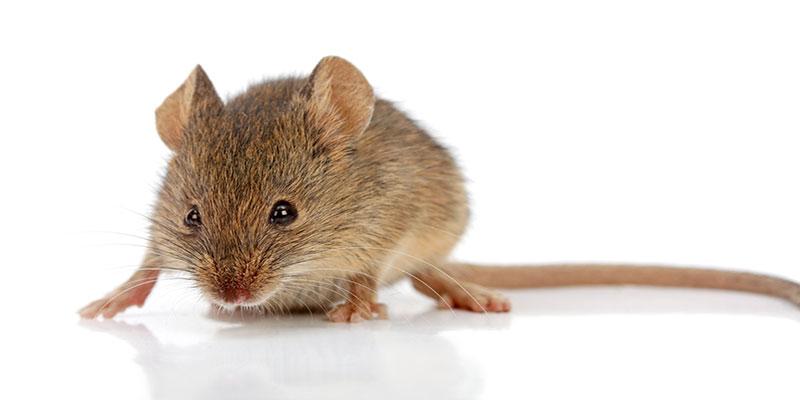Tim Larson
RS, ACE, Quality Assurance Manager, Rentokil — North America
The production and packaging of food products demands the highest standards of quality and hygiene. For food manufacturers and related organizations where food is at the center of the business, pest infestations are a very serious concern that constitutes a constant threat to business success.
Deeper Insights
Food manufacturers should have an expectation that pests are always lurking due to the presence of food in their operations. For these businesses, the dangers of pest infestation occur at several points in the supply chain, including when raw ingredients arrive, inside machinery, in the warehouse or at the customer’s warehouse. As a result, food manufacturers have the critical need to remain vigilant and maintain careful records to ensure and demonstrate that pest activity is not having a negative impact on their standards — or those of their customers and auditors. Continual action is critical to preventing an infestation from occurring and effectively managing any potential risk.
The many business impacts of pest infestations
In order to gain insight into the challenges and issues pest infestation can present in food manufacturing and other industries, including the economic impact, Rentokil commissioned independent research agency Opinion Matters and the Centre for Economic and Business Research (Cebr) to identify key trends impacting businesses and pest control. This research found that in 2014 alone, disruptions caused by pest infestations resulted in up to $9.6 billion in operating costs in the countries surveyed. Moreover, eighty-four percent of U.S. businesses reported a net impact on revenue due to pest infestation across a five-year period. Statistics like these highlight the seriousness of the issue.
However, particularly for food-related businesses, the potential impact is not limited to financial loss alone. The Cebr research found that food manufacturers and processors reported pest-related costs associated with an erosion of staff morale (30%) and contamination of raw materials leading to replacement costs (28%). If the pest problem is only discovered in finished goods on arrival at the customer’s location, negative impacts, such as penalties and loss of revenue and reputation, will be at their highest. Even before that point, if pests are discovered during production, there can be a loss of productivity due to machine downtime, which can lead to missed fulfillment dates, potential contract losses and financial penalties. According to the Cebr research, 41 percent of non-public facing core-food firms cited business disruption from infestations that lasted the same amount of time as the infestation itself.
The benefits of an Integrated Pest Management approach
The negative consequences of pest infestation is exacerbated for food manufacturing and processing operations because they are typically subject to stringent audits by customers and corporate head offices, as well as independent industry auditing bodies. When auditing is required, up-to-date and easily accessible records are essential in demonstrating that pest control is managed effectively. This is one reason many businesses subject to auditing requirements choose to partner with a professional pest control supplier who can devote full attention to managing and documenting a proactive plan to control pests, freeing the organization to focus on its core activities.
The application of practical and scientific experience to provide a tailored solution for a particular environment is the first step in proactively minimizing the risk of pest infestation and protecting a food manufacturing business. The best approach is to have an integrated pest management (IPM) program as part of the organization’s food safety measures. IPM is an approach to pest management that minimizes reliance on chemical pesticides and — instead of only trying to eradicate pests — considers all available preventative and curative options.
In general terms, an effective IPM plan includes four steps:
- Inspecting the physical plant both inside and outside for ways in which pests might enter the building, as well as for the food, water and harborage that may attract pests and allow them access into the facility. While it is easy to neglect corners when cleaning, they are a common problem area for pests for just that reason.
- Identifying any pests that exist and developing a specific plan to eliminate them using mechanical or bait traps, pesticides or other appropriate means. It is important to develop a system for tracking type, frequency and number of pests caught in each identified area of the facility.
- Enlisting the support of company management as well as production workers to implement the program, including training sanitation staff to thoroughly clean problem areas according to a specific sanitation schedule.
- Continuously monitoring the program and recording results. In this way, an organization can prove success and/or adjust the program if, when and where necessary. Some qualified pest control partners offer online tools for monitoring and tracking pest activity, control measures and trends.
Pesticides are an important and necessary part of IPM, however the goal of an IPM program is to reduce the amount of pesticides used, which is a better method all the way around for a food manufacturing facility.
As the Cebr research results demonstrate, pest control is always a concern for food producers. It’s a task that requires knowledge and expertise to comply with national and local regulations and the requirements of third-party auditors. Additionally, maintaining the cleanliness and safety of an organization’s food products is vital to brand reputation, which makes paying attention to a meticulously kept facility of critical importance. An investment in a proactive IPM plan helps ensure the safety and quality of the products being delivered to consumers.







